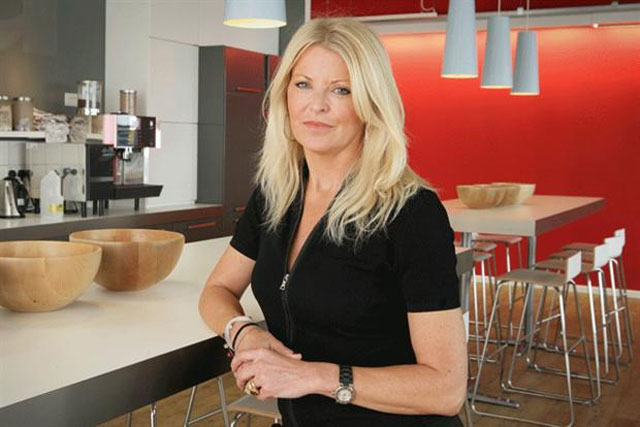
The love story between Britain and Scandinavia has been going on for some time now. There is a mutual appreciation between our two cultures that runs from pop music to comedy, from fashion to design. The British loved ABBA and Roxette; Ikea furniture is in countless British homes; Steig Larsson is on countless people's bookshelves; The Bridge is on their TVs and Bjorn Borg underwear is increasingly turning up in British bedrooms, too.
Clearly our preference for clean, simple and functional design is attractive; otherwise Ikea wouldn't be so successful.
But just as the Brits love our sense of simplicity and minimalism, so do the Scandinavians love the edginess of Anglo-culture. British fashion has always felt exciting and unique, and Swedes in particular love the UK's quirky sense of humour; Monty Python, Fawlty Towers and Little Britain are just a few favourites to have made it to our shores.
We learn English from an early age and often travel to the UK as teenagers. I was 16 when I first came over to improve my English - I stayed in Brighton and must have come across as a tad naïve when introduced to the culture of pubs and partying by people my age.
Functional design
So what is it that Brits love so much about Scandinavian culture? Clearly our preference for clean, simple and functional design is attractive; otherwise, Ikea wouldn't be so successful in the UK. Scandinavian design is practical and straightforward, whereas British design is often contrastingly creative and detailed.
The difference in our styles runs as deep as our language: Swedish uses such few words in comparison to the diversity of English. At home we wouldn't create sentences half as long as can be constructed by the British tongue. It means Scandinavians can sometimes come across as rude, though only because we say what we mean.
When I was younger I once took my diary out to set a date when a Brit had said to me, "We should meet up sometime," before I realised it was more of a figurative phrase than a definitive one. Incidents like this lead me to think the English language can, at times, be a little too figurative.
But I believe it is this contrast in styles that makes Scandinavian design popular in the UK, and why Ikea's selling point is so unique in this market. Whereas for us, Ikea just feels very Swedish.
Practical lifestyles
Our practicality is another point of difference: we Swedes move in groups, we want everyone to agree with each other, we even dress similarly; we lead practical lifestyles. You wouldn't catch a Swede going out in strappy sandals or just a scarf and gloves to accompany a suit when its freezing cold and raining outside, but then, we do love the commitment to style that the Brits possess when facing the worst of the weather.
Though with our practicality comes security and safety, which in turn creates a strong base that allows us to be daring and innovative. I think this security is what makes our lifestyle aspirational in the eyes of the Brits because of what it can afford: in Sweden you can have as many children as you want because you keep your job whether on maternity or paternity leave. You can be heading up a big company and still make it to your day care service by 4pm to pick up your kids.
We moved to London when my daughter was four. By the age of seven she said she liked Sweden because it felt safe, but she decided it could also be a bit boring. London on the other hand, she thought was "a bit dangerous but also a bit exciting".
Now Britain has a new, more sophisticated and darker kind of Scandinavian pop culture to fall in love with.
Now my daughter is at university and since making her first observations about her two homes, Britain has a new, more sophisticated and darker kind of Scandinavian pop culture to fall in love with. We have produced DJ troop Swedish House Mafia; there was the explosion of the grim but gripping Steig Larsson trilogy; the British adaptation of Henning Mankell's Wallander novels; and the cultish crime dramas The Killing and The Bridge.
And as Scandinavian design will always have a desirable air of simplicity and functionality, and just as Britain will always have that attractive edgy quality, I expect the love story between the two cultures will continue for some time. Not a lot of Swedes understood the British love for Sven Goren-Eriksson, though, but I think that one is definitely over.
Anna Crona is the chief executive of production network Stopp and the former UK marketing director of Ikea.



.jpg)
.jpeg)
